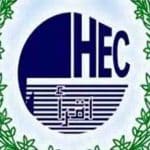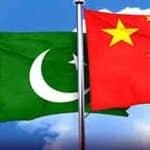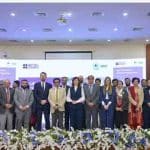M. Salman Raza
MULTAN, Nov 2 (APP):As the government begins to roll out uniform curriculum across Punjab in line with its manifesto as ‘one nation one curriculum’ experts are looking forward for positive outcomes to end class division and socioeconomic disparities in the society.
Pakistani education system is split along three broad lines: a tiny sliver of expensive private schools preparing students for foreign examinations; low-to-middle and public/private schools that follow the federal/provincial curriculum; and madressah education. Therefore, uniform curriculum has become vital for the country to bring socioeconomic integration in the society.
The class-based education system and multi-layered curriculum has widened polarization and created more social and economic disparities among different strata of the society leading to lack of tolerance and acceptability towards each other due to ‘different systems of education’. Thus the contrasting worldviews from different streams of education and the class-based education system has become more ‘a dividing force than binding one’. Therefore, a unified system of education having Single National Curriculum (SNC) is of vital importance for social cohesion, national and economic integration and nation building.
Curriculum consists of almost everything that helps in promoting the learners abilities in terms of intellectual, spiritual, moral, aesthetic, emotional, social and physical development. It also includes co-curricular and extracurricular activities with approaches to teaching, learning, and assessment etc. The new education policy of the incumbent government based on Single National Curriculum (SNC) could help in putting an end to the education apartheid in the country. The same courses of study at primary level are expected to bring the same learning outcomes with the vision to transform the younger generation to a unified nation.
The same curriculum, which has been approved and announced for all enrolled students from grade I to V in all three layers of education systems: elite private schools, pubic school and religious seminaries would make the students able to live more in harmony with other citizens as adult graduates due to greater level of commonalities and shared background.
Former Federal Minister for Religious Affairs Hamid Saeed Kazmi said in this regard that they had no objection over initiating Single National Curriculum (SNC) in the country. He said, “Let’s see how the government implements it across the board.”
Shafqat Hayat, Principal of Nishat School, the largest chain of private schools, has welcomed the government’s decision of introducing SNC in every school. He termed the new syllabus is going to be introduced from class one to five. He said their core committee’s meeting has approved new books.
Nelson Mandela once said, “Education is the most powerful weapon which you can use to change the world.” And it is this weapon that socially and economically empowers citizens and nations locally and globally to compete with the modern world in terms of economy and technology.
Ms Kausar, Principal of Jinnah High School following pattern of Cambridge system, said, “We are glad to use the recommended books of Punjab Textbooks. It is not only the content and pictures to attract children but rather it is about the methodologies and techniques how to deliver ideas, language skills, and history etc. The SNC has explained each and everything according to each level”.
Asking about the reason that distinguishes SNC from past curriculum, she said, “It is an attempt to end discrimination in society by offering the same education to children of every strata of the society. Secondly, it provides a good chance to children to learn Nazera-e-Quran and Namaz in the school.
Zahid Hussain, a known journalist and writer said SNC focuses on development of analytical, critical and creative thinking through activities-based approach rather than static teacher centric learning.
Follow the PNI Facebook page for the latest news and updates.








